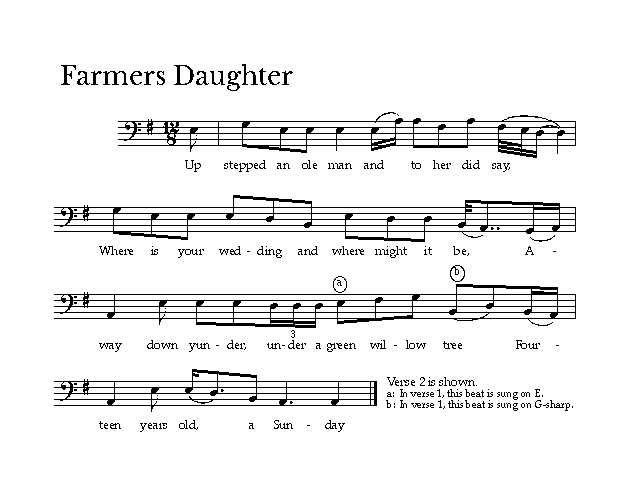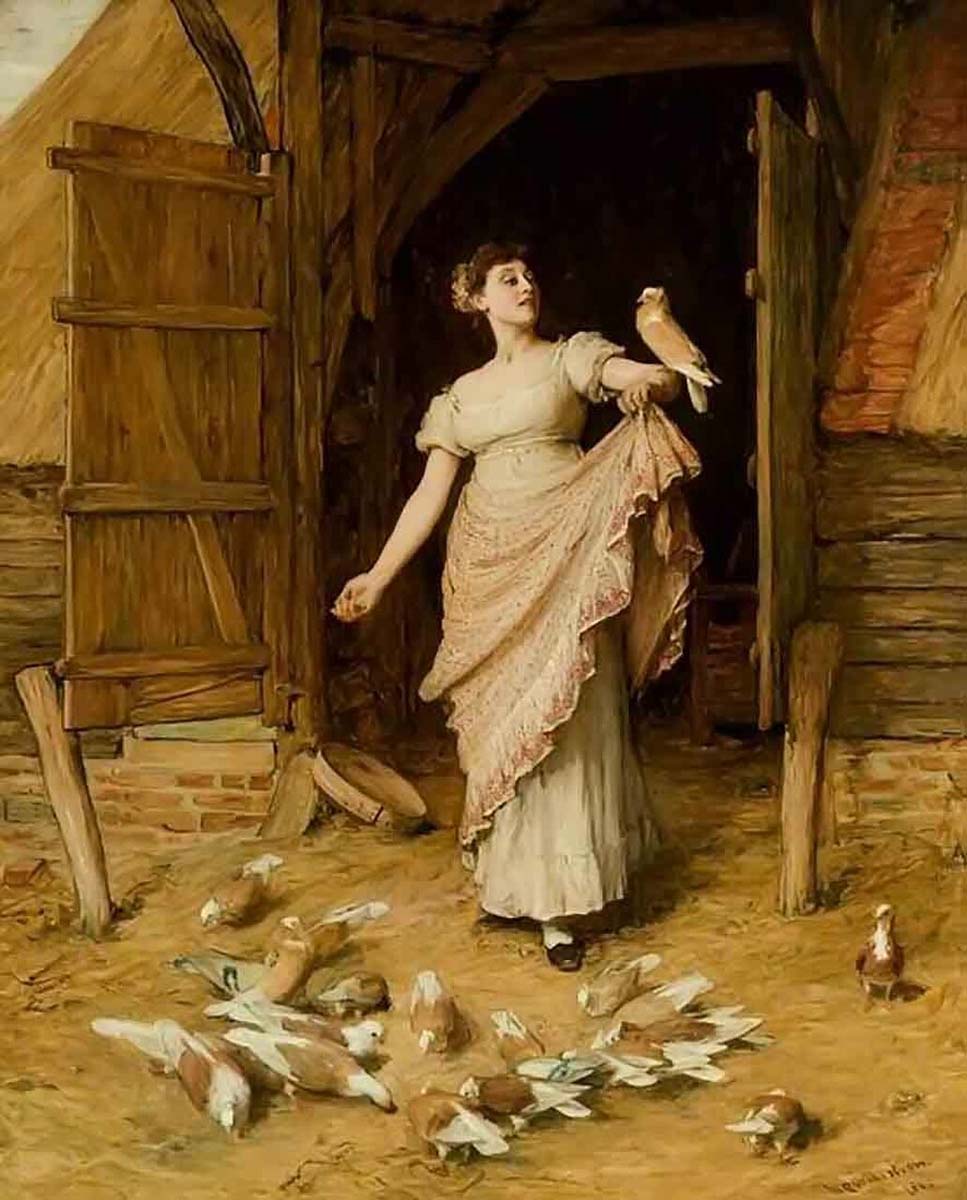Introduced by Sarah Jane Nelson
It was a challenge to pick one song (just one?) from the Max Hunter Folksong Collection, but “Farmer’s Daughter” swiftly made its way to the top of the pile. Harrison Burnett, who sang this song for Max in 1959 and in 1961, had the great fortune to be a “singing watchman” at the University of Arkansas where folklorist Mary C. Parler taught classes. Parler and her husband, Vance Randolph, were lifelong mentors to Max and often shared tapes and “informants” with him. Max visited Harrison at least twice, and got 16 songs from him. See The Max Hunter Folk Song Collection at Missouri State University.
Listen to “Farmer’s Daughter,” as sung by Harrison Burnett, Fayetteville, Arkansas on June 15, 1959. (Source: Max Hunter Folk Song Collection, Missouri State University)

Source: Max Hunter Folk Song Collection, Missouri State University
Checking the Ozark Folksong Collection at the University of Arkansas, I see that Parler got there first, having collected this same song under the title “I’m Gonna Get Married A-Sunday” back in 1955. It was clearly a favorite of Harrison’s, who sang it with an authority in which he gives equal weight to both the old man’s cautionary message and the young-girl-in-a-hurry. There is such a visceral quality to this song — I can just feel the sun on my back as I “walk down in town” and I can smell the [implied] scent of lavender on the “bonnet and shawl” as they “lie on the shelf.” And then there’s the buoyancy of the melody itself which will put you on a cloud as you sing.
And while this piece could be tossed off as a “quaint little ditty” about a young girl’s naïve obsession with ribbons and bows, Harrison’s manly, sonorous voice (note the bass clef transcription!) delivers it on a much deeper level; it’s really about love and sex, hindsight and foresight, wisdom and impulsivity —a ll the things that make the world spin. There is a timeless universality in the dialogue between these two people, and they reside in every one of us.
According to writer Ted Anthony, Max had this to say about Burnett: “I believe Harrison is one of the finest singers I have ever visited and collected from.” I would encourage readers not only to listen to the Hunter recording, but to get a hold of Mark Bilyeu and Cindy Woolf’s recording Wolf Hunter, a magnificent album which gives this song (along with many others) new life.
Musician and writer Sarah Jane Nelson is still at work on her biography of Ozark song collector Max Hunter. You can learn more about her project by going to her campaign site.


 Thanks to the Massachusetts Cultural Council for their generous support.
Thanks to the Massachusetts Cultural Council for their generous support.